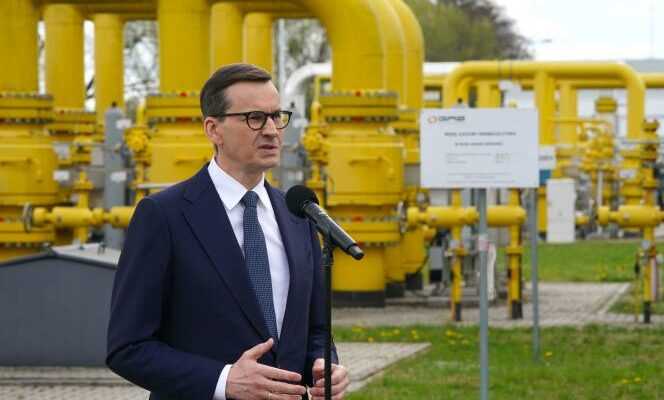Europeans do not know how to interpret Gazprom’s decision to cut off its gas deliveries to Poland and Bulgaria from Wednesday 27 April. They fear that this is the start of a series, which will then see other countries in the European Union (EU) subjected to the same treatment. And they hope, without saying so, that this is a retaliatory measure targeted at these two countries, a kind of show of force intended to scare them.
For the time being, they are united behind Warsaw and Sofia, which represent only 8% of Russian gas imports from the Twenty-Seven. “The Kremlin uses fossil fuels as an instrument of blackmail”said Commission President Ursula von der Leyen on Wednesday. “We have prepared for this scenario”she added, promising “a coordinated European response”. As of Wednesday, Germany sent gas to Poland and Greece to Bulgaria.
The Kremlin claims that Sofia and Warsaw are deprived of gas for refusing to pay for their purchases in rubles. Faced with European sanctions, after the invasion of Ukraine by Russia, the Russian President, Vladimir Putin, demanded that these transactions be made in the Russian national currency. On Wednesday, Moscow suggested that Vienna had accepted its terms before being denied by the Austrian prime minister. Ursula von der Leyen, for her part, recalled that “97% of contracts [entre des groupes de l’UE et les fournisseurs de gaz russe] provide for payments in euros or dollars” and that there is therefore no reason to modify the terms. Moreover, she warned, European companies paying for Russian gas in rubles would violate EU sanctions and therefore expose themselves to legal risk. ” raised “.
Russian “revenge” against Poland
For Polish Prime Minister Mateusz Morawiecki, the Russian decision is ” a revenge “ against Poland, which, since the start of the conflict in Ukraine, has been on an uncompromising line vis-à-vis Moscow. On many occasions, Warsaw has called on its partners to deliver more arms to kyiv and to decide without delay on an embargo on Russian energies. Bulgaria is much less committed to supporting Ukraine.
On the other hand, the two countries have in common that they decided, not long ago, “not to renew their contract with Gazprom”which ends in the coming months, explains Thomas Pellerin-Carlin, director of the energy center of the Jacques-Delors Institute. “The Baltic countries have stopped importing Russian gas, other member states have announced their intention to do so, but without giving a precise deadline. But only Poland and Bulgaria have announced the non-renewal of their contract”says a diplomat.
You have 50.92% of this article left to read. The following is for subscribers only.
